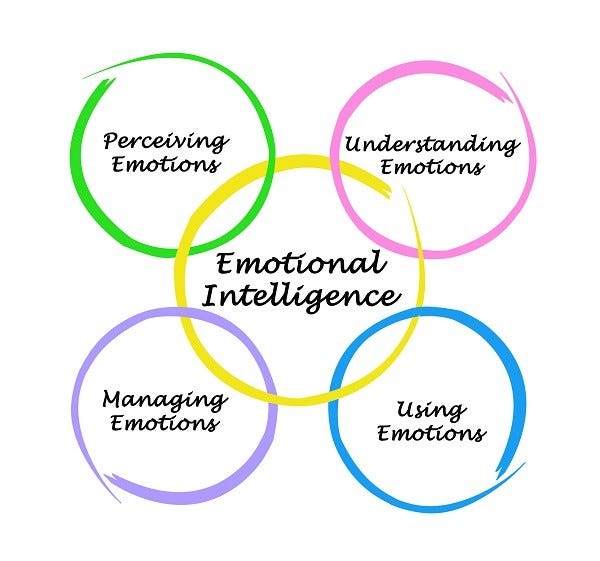As humans, emotions play a significant role in our daily lives. They can be incredibly powerful, influencing our thoughts, behaviors, and overall well-being. Have you ever wondered why some people seem to handle their emotions more effectively than others? The answer lies in a concept called emotional intelligence.
Emotional intelligence, or EQ, is the ability to recognize, understand, and manage our own emotions, as well as recognize and empathize with the emotions of others. It encompasses a set of skills that can be developed and refined over time, ultimately leading to improved personal and professional relationships, resilience, and overall happiness.
Understanding your own emotions is the foundation of emotional intelligence. It involves being aware of your feelings and the factors that trigger them. For example, if you find yourself feeling stressed, understanding what specifically is causing that stress can help you take appropriate actions to manage it more effectively. This level of self-awareness is crucial in learning how to regulate and control your emotions in a healthy way.
One effective strategy to enhance self-awareness is practicing mindfulness. Mindfulness involves being fully present in the moment, observing your thoughts and feelings without judgment. By slowing down and taking the time to tune in to your emotions, you can gain a deeper understanding of yourself and your triggers. This awareness can empower you to make conscious choices about how you respond to different situations, instead of reacting impulsively.
Once you have a better understanding of your own emotions, the next step is learning how to manage them effectively. Emotional regulation is the ability to control your emotions and channel them in constructive ways. It doesn’t mean suppressing or dismissing your feelings but rather finding healthy outlets to express them.
One strategy for emotional regulation is practicing self-care. Engaging in activities that bring you joy and relaxation can help reduce stress and improve your emotional well-being. It could be anything from taking a warm bath, listening to music, going for a walk in nature, or spending quality time with loved ones. Finding what works best for you and incorporating these activities into your routine can greatly improve your ability to manage your emotions.
Another crucial aspect of emotional intelligence is empathy, the ability to understand and share the feelings of others. Empathy allows us to connect with others on a deeper level, fostering more meaningful relationships. It involves actively listening and putting yourself in someone else’s shoes, trying to understand their perspective and emotions.
Practicing empathy not only enhances your relationships but also enables you to be a more effective communicator and problem-solver. When you can truly understand and validate someone’s emotions, it becomes easier to find common ground and work towards resolutions together. Ultimately, empathy is about building bridges of understanding and connection, creating a more compassionate and harmonious world.
Developing emotional intelligence is not an overnight process; it requires patience, practice, and self-reflection. It’s about continuously striving to become more attuned to our emotions and the emotions of those around us. By doing so, we can cultivate more meaningful relationships, handle stress more effectively, and lead happier and more fulfilling lives.
So, how can you continue to enhance your emotional intelligence? Start by paying attention to your emotions and the triggers that evoke them. Practice mindfulness to develop a deeper awareness of your thoughts and feelings. Find healthy outlets to express and regulate your emotions, such as engaging in self-care activities. And above all, practice empathy – actively listen and seek to understand the emotions of others.
Remember, emotional intelligence is not only about understanding and managing emotions but also about using that understanding to connect with others and create a positive impact in the world. Let’s strive to develop our emotional intelligence and foster a more emotionally intelligent society. Together, we can make a difference.
